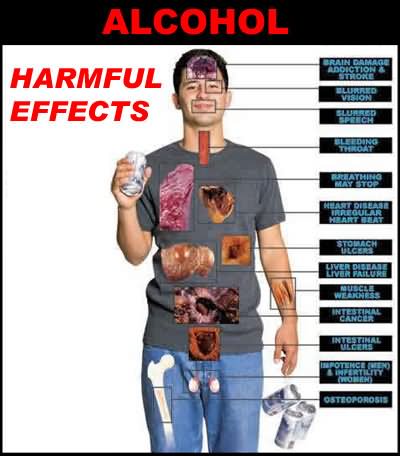More than half of U.S. 12th graders will have experimented with alcohol by graduation, making alcohol among the most commonly used drugs among teens.
Alcohol is a depressant, meaning it slows the brain and inhibits communication pathways. It also affects the cerebral cortex, lowering inhibitions. (We may realize a decision is not wise, but we may no longer care about the consequences!) Drinking also slows down the brain’s ability to gather information from the outside world, meaning the user is less aware of his surroundings.
Long-Term Effects of Alcohol Abuse
Drinking beyond moderate consumption (up to 1 drink a day for women and up to 2 drinks a day for men) can lead to permanent impairment of cognitive functions. Even once sober, a former alcoholic may have a harder time paying attention and making decisions.
Alcohol consumption directly affects your brain, heart, liver, kidneys, bowels and pancreas and can lead to long-term problems with all of these organs, including liver failure, heart disease, skin problems, sexual problems, mouth cancers and breast cancer in women.
Alcohol & Teens
While alcohol is a legal drug for adults over 21, there are risk factors that make alcohol consumption less safe for teens. Those who first use alcohol under age 14 are more likely to develop issues with substance abuse. Teens are also more likely to binge drink, worsening the short-term effects of alcohol use.
Signs of Alcohol Abuse
- Headache, loss of appetite when sober
- Anxiety and jumpiness when sober
- Shakiness, only relieved by a drink
- Memory lapses
- Emotional changes – acting more careless

